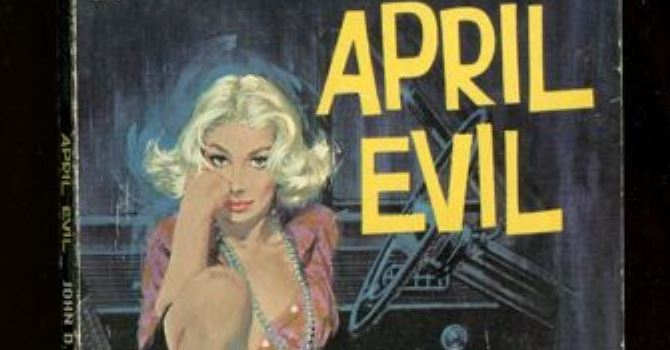
by Noriyuki Morimoto
April Evil (1956) is a novel written by John D. MacDonald. Its main story line is about a vicious robber breaking into a millionaire’s house.
The villain had set eyes on this millionaire because he had his entire fortune turned into cash and stored in a safe in his house. The millionaire had done this in order to prevent the money from working. When the man had been working as a successful businessperson, the assets he accumulated were also actively put to use and kept reproducing. However, together with his retirement, he forced his fortune to retire as well. Bank deposits would produce interest income, i.e. put the money to work, so he had it stored at home in the form of bank notes.
Assets can only be called so because they reproduce through interests. An asset is something that bears children. Thus cash in the form of bank notes, which does not produce anything, has effectively ceased to be an asset. The millionaire had killed his assets by imprisoning them in his safe.
By the way, this novel comes with a brilliant ending. The villain actually managed to rob the money, but fled from pursuers in a small boat. (The story takes place in a coastal town in Florida.) Several days later, he is found dead in the boat bobbing on the sea, killed by thirst. The irony is that with a huge amount of cash, he could not even buy a glass of water off the coast. Even if cash is not an asset, in the sense that it lacks the power to bear interest, it nevertheless should hold purchasing power as a means of settlement. However, in a boat floating in the middle of the sea, even that purchasing power had been lost.
As the first step of investment, interest is the minimum profit that an asset can produce. But as a basic nature of capital and the capitalist economy, capital constantly moves towards higher rates of profit. And of course, this is also an underlying principle of investment.
That is the very reason the millionaire in the novel shut his money in his safe. In this way, capital cannot work, let alone move. He had punished the capital. This millionaire, who had made a fortune through real estate, can only be described as a bizarre philosopher with anti-capitalist beliefs.
On the other hand, as capital reproduces while moving towards higher rates of profit, the marginal profit of capital converges to zero. This is an issue related to Karl Marx’s theory. In this sense, the persistence of extremely low interest rates in Japan is actually fearsome, because it implies that capital accumulation has reached the point where capital no longer has a place to work.

Chief Executive Officer, HC Asset Management Co.,Ltd. Noriyuki Morimoto founded HC Asset Management in November 2002. As a pioneer investment consultant in Japan, he established the investment consulting business of Watson Wyatt K.K. (now Willis Towers Watson) in 1990.

